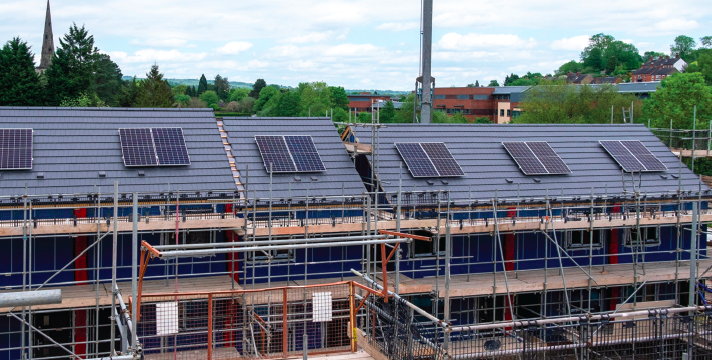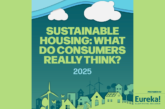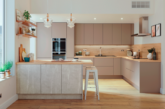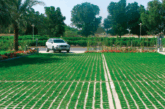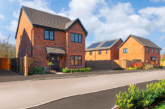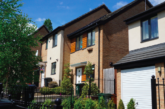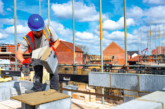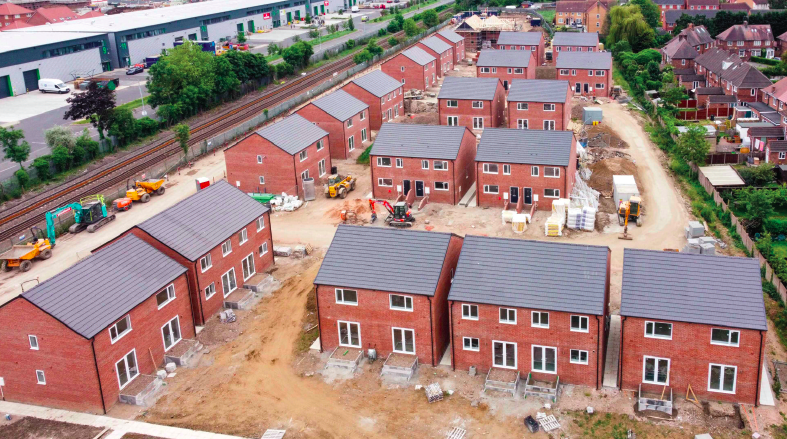
Russell Roof Tiles explores meeting the demand for sustainable new-build construction with considered roofing materials.
In recent years there has been an upturn in the number of consumers wanting to live in sustainable homes. This extends to not only cover energy efficient features but the construction of the home too, an independent study found that a third of households surveyed when asked about “eco-homes” wanted their property to be constructed sustainably as well as to include renewable energy systems, recycling and food waste disposal.
For housebuilders and developers this demand means minimizing the environmental impact of all areas of construction from site management to the technologies used. Sourcing sustainable products is one key element that can help reduce the carbon footprint of the construction process and help ensure that new housing is efficient.
Greener Products for Greener Building
Specifying sustainable building materials, that are renewable, recycled or have low environmental impact, can be the foundation to building homes with a reduced ecological footprint.
When it comes to roofing specifically, concrete roof tiles can offer a more sustainable solution. Typically, they require less energy for production than their clay counterparts; since clay needs to be fired in a kiln at a much higher temperature for up to two days, whereas concrete only needs to be cured for around 24 hours at a much lower temperature, amounting to a 30 per cent reduction in energy usage. Specifically thinner leading-edge concrete roof tiles can be a good sustainable roofing solution. Generally, these tiles use 15 per cent less raw materials than a standard concrete roof tile and the product has less depth. This means that around 20 per cent more tiles can be packed onto a pallet which equates to a much lower carbon footprint when transporting them.
Alongside this, they offer easy installation, are aesthetically pleasing, require little maintenance and can be used with renewable energy systems like solar panels – making them a great option for planners and developers.
Putting it into Practice
Leading housebuilders are already ensuring new build developments meet the exacting demands of the sustainably minded consumer.
One of these being MyPad who are an established residential developer specialising in the delivery of partnership housing schemes from land to living, creating dwellings for communities in need of them. As part of its ethos, the company strives to provide highly efficient homes enabling residents to save on running costs and live comfortably
Russell Roof Tiles has supported a number of projects in the midlands with leading East Midlands Residential Developer, MyPad for which it’s Lothian Tiles in Slate Grey were specified, a popular thinner leading edge option. For these recent projects the housing developer was in search of an eco-conscious roofing solution that would help the developments meet high sustainability standards, with the housing itself on some sites being constructed with a timber frame. Russell Roof Tiles’ Lothian Tiles provided a high-quality but cost-effective solution that will help to ensure the development meets these requirements.
Michael Broadhurst, Commercial Manager at MyPad comments: “Customer demand for sustainably built and maintained housing has really pushed the standard of housing forward, over and above just the recent enhancements in Building Regulations.
“At MyPad we pride ourselves on providing high quality, highly efficient homes. We achieve this through providing a fabric first approach, highly insulating the structure of the building and using sustainable building materials throughout. This then makes running their home efficiently, that much easier for residents. “In the market of social housing this is becoming increasingly important. We are seeing a much higher demand for such housing as many feel the ongoing effects of fuel poverty. It is our responsibility to ensure the homes we are building are as efficient as possible to ensure people can live in them comfortably.”
One step further
The sustainability of a product can go beyond its manufacturing process to include how it is stored, and how it is transported. For example, signing up to a pallet return scheme and making the switch to electric equipment is something that Russell Roof Tiles have done to reduce emissions across its sites and as a result its products.
All of the timber pallets used to transport goods are FSC-approved, and the logistics team works to consolidate delivery shipments to reduce our fleet emissions. Russell Roof Tiles has also redesigned its packaging with increased amounts of recycled material, in an effort to make the entire process more sustainable.
As a prominent manufacturer of concrete pitched roof tiles, the company has made major investments in sustainability across its three sites and are proud to be leading the task force to analyse new initiatives and develop methods that can help us foster a more sustainable future for the construction and housebuilding industry.

